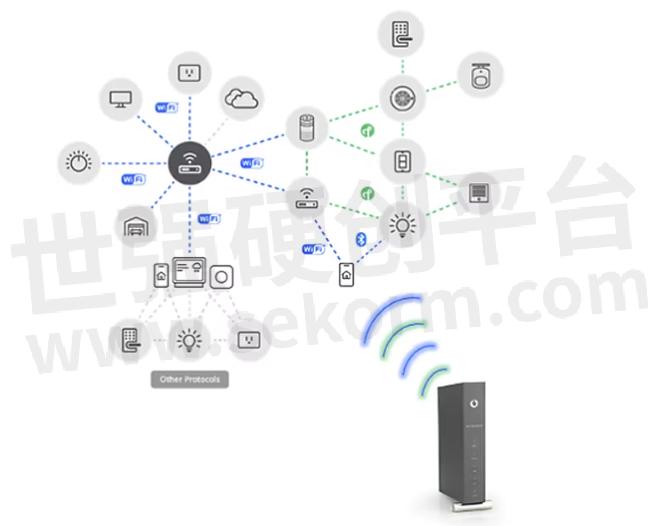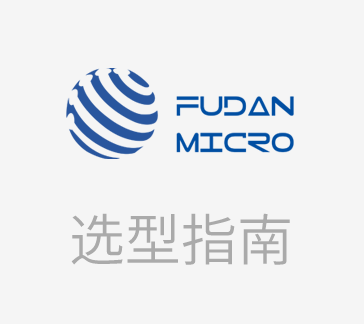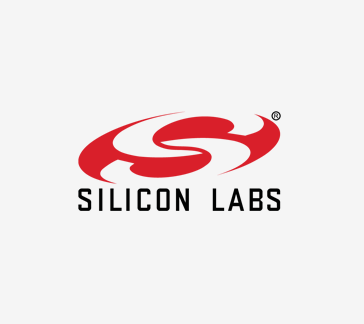Building a Stickier Smart Home Business – 7 Facts ISP and Telecom Leaders Should Know about IoT


Broadband internet subscriptions once seemed like a forever-growing cash generator for service providers. Unfortunately, the growth has plateaued in most developed markets, and the leading ISPs and telcos are now integrating new IoT capabilities on their Wi-Fi gateways in anticipation of the Smart Home transformation. However, simply putting a Thread 802.15.4 wireless chip in a CPE and rolling it out to millions of subscribers is not yet enough for a viable smart home business. In this blog, Christopher Ince from SILICON LABS explains seven aspects of IoT that ISP and telco leaders should consider in order to build a stickier smart home business.

The Broadband Plateau
In just two decades, the number of global fixed broadband connections increased nearly eight-fold from 200 million to 1.5 billion. This historical growth era, which really took off at the advent of the millennium, has churned fortunes for internet service providers (ISPs) and telcos worldwide. Great cash cow, you might think. Well, it had its moment. Today, the fixed broadband markets in most developed countries have saturated, according to the OECD Broadband Portal. This has led to intense competition, increasing customer acquisition costs, price erosion, and churn, hitting the service providers' bottom lines. In the USA alone, nearly 3,000 broadband ISPs are fighting for the dollars Americans pay every month to get the information highway flowing into their homes.
Smart Home Benefits to Internet Service Providers (ISPs)
The global ISP market was valued at USD 390 billion in 2022 and is projected to reach USD 566 billion by 2032, expanding at a CAGR of 3.9% during this period. Despite promising industry forecasts, the old broadband growth strategies do not apply anymore, and service providers need new ways to grow business.
Bundling new smart home services and IoT connectivity technologies into broadband subscriptions has quickly become one of the most promising ways for the leading ISPs and tTelcos to accelerate their business.
Smart home and IoT provide many clear benefits to service providers – they can become the complete provider of wireless IoT home connectivity alongside Wi-Fi, managing and optimizing connectivity for all types of IoT devices used in homes today and in the future. Owning the home IoT infrastructure, e.g., OpenThread Border Router (OTBR) capability, allows service providers to claim a strategic position in the greater smart home ecosystem and do meaningful and sustained business alongside global smart home brands such as Amazon, Apple, Google, and Samsung. Smart Home and IoT services also help service providers enable new revenue sources, improve customer value-add, and strengthen customer retention, thus improving subscription business and reducing churn.

Figure 1 Internet Service Providers are transforming their legacy Wi-Fi CPE base into a multi-protocol IoT home infrastructure by adding Thread 802.15.4 and other low-power wireless protocols to complement Wi-Fi.
Seven IoT Aspects ISP and Telco Leaders Should Consider
We are witnessing a trend of ISPs and telcos recognizing that it is their role to own the wireless IoT infrastructure of connected smart homes. However, simply integrating a Thread 802.15.4 wireless chip inside Wi-Fi home gateways and rolling them out to millions of subscribers is not yet enough. There are seven critical aspects of IoT that ISP and telecom leaders should consider before locking their smart home strategies:
1.IoT Infrastructure – The existing legacy CPEs typically support Wi-Fi connectivity only. However, the smart home IoT device market is proliferating rapidly, and Wi-Fi is not optimal for all device types. In fact, many emerging IoT devices will use a more energy-efficient and lightweight mesh connectivity technology such as Thread. So, building a scalable and future-proof IoT home infrastructure that supports Wi-Fi, Thread, and even other wireless IoT connectivity technologies such as Bluetooth Low Energy (LE), is the first step service providers should consider. How to choose the right set of IoT technologies that allow you to cover all home IoT connectivity needs today and in the future? Silicon Labs has years of experience in helping service providers and gateway manufacturers to enable optimized wireless multi-protocol IoT solutions such as OpenThread Border Router (OTBR) on gateways.
2.Matter Gateway – As described earlier, enabling wireless IoT infrastructure is the first step toward a scalable and future-proof smart home business. However, if you want to enhance your business from a mere IoT connectivity provider to offering value-added smart home applications to your customers, Silicon Labs’ multiprotocol wireless SoCs, MG21 and MG24, enable the Matter Gateway capability on your CPE, allowing you to increase revenue through your own, branded Matter ecosystem, bundle devices of any manufacturer via the Matter protocol, and allow users to control them all via your App, Amazon, Apple, Google, and, Samsung.
3.Wireless Performance – Every home imposes a unique combination of wireless challenges to service providers – concrete walls, metal surfaces, windows, and other sources of interference can deteriorate user experience, burden your customer service centers, and increase operational costs. As a service provider, you must optimize IoT wireless performance on your gateways to enhance user experience, regardless of where the gateway sits in any given home environment. Silicon Labs IoT solutions are renowned for their superior wireless performance – such as the MG24 multi-protocol chip that offers the market-leading link budget and antenna diversity, delivering efficient connectivity in every corner of the home and beyond.
4.Wi-Fi Co-existence – With the legacy Wi-Fi-only home gateways, service providers didn’t have to worry about 2.4 GHz multi-radio/multi-protocol interference. However, with smart home gateways combining Wi-Fi and IoT radios such as Thread, you will face a new challenge: how to manage Wi-Fi co-existence? Silicon Labs can help you to design the most effective Wi-Fi co-existence solution on your gateway using, e.g., our advanced Packet Transmission Arbitration (PTA) and the patent-pending Signal Identifier capabilities.
5.Energy Consumption – Energy regulations such as the new, stricter EU Ecodesign Standby Regulation 2023/826 (HiNA) effective 2027, will limit the standby power consumption of consumer CPE down to ≤7W, forcing service providers to reduce the gateway power consumption radically. Silicon Labs provides you with many innovations for more energy-efficient gateway design – for example, you can allow users or network operators to turn the power-hungry Wi-Fi transceiver off and on remotely during nights, weekends, or vacations using our patent pending Thread solution, or Bluetooth LE.
6.Platform Integration – Building an IoT infrastructure that scales to millions of homes and supports new devices, services, and connectivity technologies for years to come requires seamless integration of dozens of building blocks. Managing them can become an integration nightmare. To make things easier for service providers, Silicon Labs offers an end-to-end one-stop-shop solution for building a scalable and future-proof IoT home infrastructure. This includes high-performance and ultra-low-power multiprotocol wireless processors, pre-verified wireless software stacks, tools, security, always up-to-date Matter implementation, online Matter Developer Journey, and a Connectivity Lab where you can test your gateways and devices in a friendly environment before taking the official certification tests.
7.Interoperability – A smart home solution without seamless interoperability between gateways, devices, protocols, and ecosystems is like a symphony orchestra without a conductor. If the devices are not playing the same tune, the user experience suffers, customers are frustrated, and vote with their feet. Silicon Labs has worked for decades to become the conductor of the smart home industry – we provide tested and verified wireless IoT and Matter solutions to both, gateway and device makers, allowing us to perfect our standards compliancy and system interoperability, ensuring that you can build a smart home experience where every component plays the same tune.
- |
- +1 赞 0
- 收藏
- 评论 0
本文由飞猫警长转载自SILICON LABS Official Website,原文标题为:Building a Stickier Smart Home Business – 7 Facts ISP and Telecom Leaders Should Know about IoT,本站所有转载文章系出于传递更多信息之目的,且明确注明来源,不希望被转载的媒体或个人可与我们联系,我们将立即进行删除处理。
相关推荐
Silicon Labs紧跟无线标准化浪潮,探讨2023年物联网市场关键趋势和技术发展态势
Silicon Labs首席技术官Daniel Cooley近期接受行业媒体专访,探讨2023年物联网市场关键趋势和技术发展态势。特别提到三个重点关注的细分市场:汽车、医疗健康和蓝牙定位,可望为整个行业带来巨大的机遇。
Moving Machine Learning To The Tiny Edge
From unlocking mobile phone with facial recognition to setting spam filters to receiving product recommendations, we interact with machine learning (ML) every day. Manufacturers of a variety of products know this and are taking advantage or ML to introduce 1eature-rich, low-power products that stand out in the market.
复旦微电子(FMSH)MCU/RFID读写器/读卡器IC/串行EEPROM芯片/SPI NOR Flash/SPI NAND Flash闪存选型指南(英文)
目录- Company Profile IoT Terminal Platform Equipment low-power 32-bit ARM Cortex-M0 MCU C251 series low power 16-bit MCU Low-Voltage Power Line PLC Chip UHF RFID Multi-Protocol Reader Solution Real-Time Clock Chip & Secure Encryption Chip High-Frequency Reader Chip Serial EEPROM Memory SPI NOR Flash Core Competitiveness
型号- FM3312,FM33LC045N,FM3313,FM25LG,FM33LC025N,FM3316,FM15160,FM25FXX SERIES,FM25LQ,FM33LG0XX SERIES,FM25FXX,FM25Q SERIES,FM25LG SERIES,FM33LC046N,FM33LC026N,FM33L015,FM33L013,FM33G042,FM33L012,FM33G043,FM24CXX,FM38025T,FM33LG023,FM17XX,FM33LG022,FM15XX,FM33LG028,FM3312T,FM33LG025,FM25QXX,FM17XX SERIES,FM33LG026,FM33G0XX,FM33G045,FM25Q,FM33G046,FM33L016,FM33G048,FM33A068,FM33L022,FM33LC023N,FM25F,FM17520,FM33L026,FM33L025,FM33LC043N,FM33L023,FM17522,FM3316 SERIES,FM33A0XX SERIES,FM3313 SERIES,FM3312 SERIES,FM33LC046U,FM33A0410,FM33A0610,FM15XX SERIES,FM151M,FM25F SERIES,FM24CXX SERIES,FM320X,FM17550,FM33LG043,FM33LG042,FM33LG045,FM33LG0XX,FM33A045,FM33A042,FM320X SERIES,FM33LG046,FM25QXX SERIES,FM33LC0XX,FM33G0XX SERIES,FM33LG048,FM33LC0XX SERIES,FM33G022,FM33G023,FM33G025,FM33G026,FM33A048,FM33G028,FM33LC043U
研讨会2024年Silicon Labs(芯科科技)无线SoC新产品研讨会
12月26日Silicon Labs(芯科科技)无线SoC新产品研讨会上将重磅推出的SiWx917以及MG2X系列无线SoC。两款产品均集成了先进的无线技术、强大的处理能力和高效的能耗管理,同时还具备了两项关键功能:超低功耗运行以及单芯片Matter over Wi-Fi功能支持。
Matter、LPWAN技术构建未来无线通信新生态
Silicon Labs(亦称“芯科科技”)作为物联网无线技术领域动化等领域提供高性能、低功耗、高安全的无线连接解决方案。近日,芯科科技主任现场应用工程师黄良军(Bruce Huang)接受EEPW无线通信专题采访,就芯科科技对未来无线通信市场的展望、新产品发布以及多协议无线通信趋势等话题进行了深入探讨。
芯科科技BG2x系列蓝牙SoC引领可穿戴设备创新,打造AI健康生活新纪元
随着人们对个人健康和智能生活的追求不断升温,可穿戴设备市场呈现出蓬勃发展的态势。在这个充满机遇与挑战的领域,Silicon Labs(亦称“芯科科技”)凭借其深厚的技术积累和敏锐的市场洞察,成为了行业的佼佼者。近日,芯科科技的家居和生活业务部可穿戴和生活业务经理Pranay Dixit参与了EEPW电子产品世界的访谈,就可穿戴设备市场的现状、公司战略以及技术创新等方面进行了深入探讨。
Silicon Labs率先支持Matter 1.4新增核心功能和设备类型,推动智能家居迈向新高度
连接标准联盟(Connectivity Standard Alliance,CSA)发布了Matter 1.4标准版本。作为连接标准联盟的重要成员之一,以及Matter标准的长期支持者和积极推动者,Silicon Labs(芯科科技)通过包含无线硬件、软件、工具在内的全面解决方案和最新推出的Matter Extension套件,率先实现了对Matter 1.4标准尤其是新功能和新设备类型的支持。
芯科科技全新xG26系列记忆体容量和GPIO翻倍,扩展Matter开发支持
SILICON LABS宣布推出新的xG26系列无线片上系统(SoC)和微控制器(MCU),这是迄今为止物联网行业领先企业性能最高的系列产品。该新系列产品包括多协议MG26 SoC、低功耗蓝牙(Bluetooth LE)BG26 SoC和PG26 MCU。这三款产品的闪存和RAM容量都是芯科科技其他多协议产品的两倍,旨在满足未来物联网(IoT)的需求,以应对一些要求严苛的新兴应用,如Matter。
芯科科技MG24系列多协议SoC助力Centero工业网络,提升工业无线连接设备性能和安全性
SILICON LABS的合作伙伴Centero运用MG24多协议无线SoC提供了易于集成、兼容的端到端无线IEEE 802.15.4和802.11解决方案,从而满足严格的行业要求。其保证的延迟是安全、关键应用程序所必需的。Centero的解决方案还提供强大的数据存储和使用信息,以及预测性维护(predictive maintenance),从而提高运营效率和工厂安全性。
Silicon Labs Matter解决方案–统一家居
描述- Silicon Labs发布Matter解决方案,旨在统一智能家居设备,提供跨生态系统的互操作性。该方案包括预认证的软件和堆栈、开发工具、安全解决方案和制造服务,以简化Matter设备的设计、测试和制造。Silicon Labs强调其解决方案在性能、功耗、共存、模块和安全性方面的创新,旨在加速物联网无线连接的发展。
型号- MR21,RS9116,XGM240P,WF200,MGM240,XGM240S,MGM240L,SIWX915,XGM210P,MG24,MG26,SIWX917,MG21,EFR32
芯科无线对照表
描述- 本资料对比了多家厂商的无线通信芯片,包括SILICON LABS、NXP、NORDIC、TELINK、华普微、TI等,涵盖了BLE和ZIGBEE两种通信协议的芯片。资料详细列出了各芯片的型号、工作电压、接收和发送性能、工作温度、电流消耗、封装类型、GPIO数量、闪存和RAM容量等信息。此外,还提供了芯片的灵敏度、输出功率范围等关键参数。
型号- NRF52840,FG23,K32W041,CC2674R10,FG25,FG28,NRF52833,NRF52832,KW45,CC1312R,TLSR922,CMT2380F29,NRF5340,CC2652R7,BG27,BG24,MG24,BG22,CC1310,MG27,MG21,CC2652,MG22
芯科科技携手Nuki公司开发支持多协议的首款智能锁,为智能门禁解决方案的简单性和多功能性开创新的标准
Silicon Labs近期为合作伙伴Nuki公司提供了MG24 SoC和WF200模块,以助力其创建第四代Smart Lock Pro智能锁产品,这是业内首款内置支持Matter + Thread + Wi-Fi多协议的智能锁,为智能门禁解决方案的简单性和多功能性开创新的标准。
【IC】Silicon Labs推出全新的2.4 GHz无线PCB模块,为物联网设备制造商提供更快速、更简捷的开发过程
致力于以安全、智能无线技术,打造更加互联世界的领导厂商Silicon Labs(亦称“芯科科技”,NASDAQ:SLAB),宣布推出全新的BGM240P和MGM240P PCB模块。该模块设计旨在为面向智能家居和工业应用的互联产品提供更快的上市时间;全新模块可支持开发人员获得可靠的无线性能、能耗效率并保护设备免受网络攻击。
使用EFR32开发板和OpenThread构建Thread网络
描述- 本文档详细介绍了如何使用EFR32开发板和OpenThread构建Thread网络。内容包括Thread概念和OpenThread CLI的熟悉,Linux机器的准备,开发板的安装和配置,Simplicity Studio 5和OpenThread协议栈的安装,OpenThread代码的克隆和构建,RCP Joiner和FTD设备的构建,Thread网络的构建和设备添加,Thread网络的实战操作,故障处理,以及使用组播和UDP发送消息。文档涵盖了从硬件准备到网络构建的完整过程,并提供了详细的步骤和注意事项。
型号- BRD4304A,MGM12P,SLWSTK6000B,BRD4180A,SLWSTK6006A,BRD4166A,BRD4164A,BRD4161A,EFR32,MG21,SLTB004A,BRD4170A,MG12
电子商城
品牌:SILICON LABS
品类:Wireless Gecko SoC
价格:¥8.1764
现货: 101,879
品牌:SILICON LABS
品类:Mighty Gecko Multi-Protocol Wireless SoC
价格:¥27.0929
现货: 90,767
品牌:SILICON LABS
品类:Wireless Gecko SoC
价格:¥10.4994
现货: 50,699
现货市场
品牌:SILICON LABS
品类:Switch Hall Effect Magnetic Position Sensor
价格:¥2.2924
现货:126,000
服务
可定制LAMP LED、 CHIP LED、 PLCC LED、 汽车用车规级LED、COB LED的尺寸/电压/电流等参数,电压1.5-37V,电流5-150mA,波长470-940nm。
最小起订量: 30000 提交需求>





































































































































































































登录 | 立即注册
提交评论